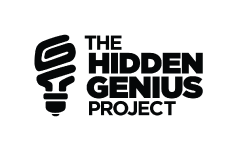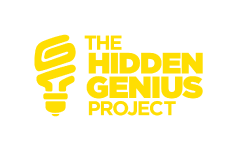Holistic preparation for a life comprising multiple pathways: Speaking to another theme from earlier, I believe ensuing generations will become increasingly comfortable and well versed in envisioning a life comprising multiple career pathways, including multiple starts and stops. Over time, our institutions and practices will catch up to the realities of shorter-term successes, some educational “failures,” and compilation of more numerous skills and experiences over the entire trajectory of their lives. We know that thirty years of service and a gold watch is barely visible in the rearview mirror, and our budding workforces will get even more adept at navigating this reality.
By: Phil La Duke, Authority Magazine
Date: Monday, October 18, 2021
There have been major disruptions in recent years that promise to change the very nature of work. From the ongoing shifts caused by the COVID19 pandemic, the impacts caused by automation, and other possible disruptions to the status quo, many wonder what the future holds in terms of employment. For example, a report by the McKinsey Global Institute that estimated automation will eliminate 73 million jobs by 2030.
To address this open question, we reached out to successful leaders in business, government, and labor, as well as thought leaders about the future of work to glean their insights and predictions on the future of work and the workplace.
As a part of this interview series called “Preparing For The Future Of Work”, we had the pleasure to interview Brandon Nicholson.
Dr. Brandon Nicholson is the Founding Executive Director of The Hidden Genius Project, an organization committed to creating a space where Black male youth participate in and contribute to the 21st century global, tech economy. It trains them in technology, entrepreneurship and leadership skills to transform their lives and communities. The Hidden Genius Project was founded by five Black male technologists who discovered their genius in high school as Ron Brown Scholars. Their commitment is to build a lifelong network of Geniuses to leverage their collective power to transform their lives and communities. Brandon has always felt a deep sense of commitment to promoting equity in the public realm, particularly in the education space. Brandon has conducted substantial research in the areas of education and youth development, with a particular focus on issues of equity and access in K-12 education for underserved populations. He has considerable experience investigating linkages among race, class, and youth development and employment.
Thank you so much for joining us in this interview series! Our readers like to get an idea of who you are and where you came from. Can you tell us a bit about your background? Where do you come from? What are the life experiences that most shaped your current self?
I am a native of Oakland, California, which is where I developed my passion for mission-driven, innovative, and collaborative social impact work. I grew up an only child in a small family, as well as a lifelong practicing Buddhist. In my youth, I was fortunate to encounter numerous challenges (health, resources, family, etc.) that allowed me to experience firsthand the resilient power young people in our communities can tap when they have a caring community that believes in them. I am grateful that I now get the opportunity to support my community today in a way that so many have supported me over the years.
What do you expect to be the major disruptions for employers in the next 10–15 years? How should employers pivot to adapt to these disruptions?
We already see major disruptions with respect to the future of space and place in work in the wake of this pandemic. So many companies and organizations are enabling more intensive remote work permanently, which puts into question the future of office space and in-person work interactions. Of course, in the context of a global pandemic it is easier to envision and understand the benefits of positive ramifications; as we someday emerge from a time of such great duress, we will have to come to terms with the implications of stinted interpersonal communication. We are certainly viewing the adaptation on the fly at this point, but when we are not in the midst of “survival mode” employers promoting various forms of remote work will have to reckon with what it means to build trust and connectivity absent some of the traditional building blocks that in-person work has offered over time.
One potential game-changing disruption is the opportunity for greater representation and innovation in the workforce. We have so many sectors and industries in which companies continue to cut off their respective noses to spite their respective faces by not tapping the wellsprings of talent they could otherwise access by expanding pathways for communities of color, women, and non-binary individuals. This presents a very basic math problem: increasing revenue ostensibly results from an increase in volume of units/services produced, which we might imagine results from an expanded consumer market. That is: to make more, we have to produce and sell more to more people, which means we have to reach more types of people. It seems next to impossible to do this successfully without a representative team driving product/service design, development, and delivery. To say it plainly: employers that “win” will increasingly be the employers who stop shooting themselves in their proverbial feet by denying the brilliance and potential of our broader communities to drive our economy forward. [Click HERE to continue reading].


